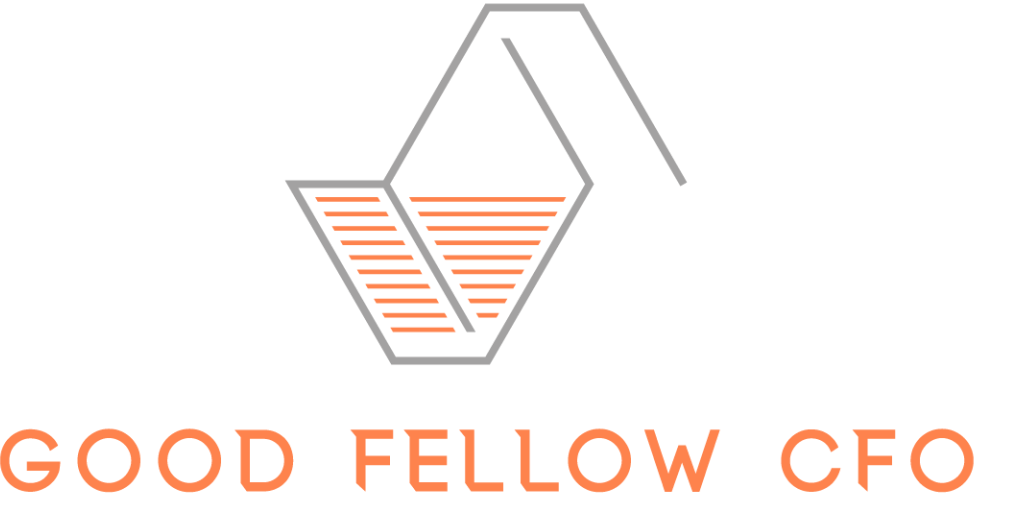Funeral Home Financials: Decoding the Balance Sheet

Introduction
In the realm of funeral home accounting, understanding the pulse of your financial health is crucial. One essential tool for gauging this is the balance sheet. This document provides a snapshot of your funeral home's financial position at a specific point in time, offering insights into assets, liabilities, and owners' equity. For funeral home owners, a balance sheet isn't just a collection of numbers – it's an invaluable roadmap for navigating towards success.
Why Your Funeral Home's Balance Sheet Is Vital
The funeral industry, with its unique financial aspects, demands keen attention to monetary details. High overhead costs, fluctuating revenues, and stringent compliance requirements make financial management in this sector more challenging compared to others.
The purpose of this article? To empower you as a funeral home owner with comprehensive knowledge about balance sheets. Over the next sections, we'll dissect its components, explore its significance in your business decisions and reveal strategies to optimize your financial resources using the balance sheet.
By letting you peek behind the curtain of funeral home balance sheets, we aim to equip you with tools that contribute to making sound financial decisions – decisions that can transform your business from surviving to thriving.
The Funeral Home Business and Its Financial Challenges
The funeral home industry faces unique financial challenges, where balancing compassionate service with sound business practices is key to success. In order to thrive, owners must find a way to provide dignified memorials while also ensuring their business remains profitable.
High Overhead Costs
One of the biggest hurdles funeral homes face is the high overhead costs associated with running their operations. These costs can include:
- Facility maintenance: This includes things like keeping the building clean and presentable for grieving families.
- Specialized equipment: Funeral homes often need to invest in hearses, embalming tools, and other equipment specific to their industry.
- Staff training: Employees must be trained not only in the technical aspects of funeral services but also in providing excellent customer care.
The Impact of the Funeral Rule
The Federal Trade Commission's Funeral Rule has a direct impact on how funeral homes can price their services. This rule was put in place to protect consumers and requires funeral homes to be transparent about their pricing. Specifically, it mandates that funeral homes provide a General Price List that outlines all the services and goods they offer.
Why Accurate Financial Reporting Matters
Accurate financial reporting through the use of the General Price List is essential for several reasons:
- Building Trust: During times of grief, it's crucial for funeral homes to build trust with their clients. By being transparent about pricing, they can help ease any concerns or doubts families may have.
- Staying Compliant: The Funeral Rule is a federal regulation, and failing to comply with it can result in significant fines or penalties. By carefully documenting and reporting their prices, funeral homes can avoid these issues.
- Managing Finances: Having clear and detailed financial data is vital for any business. By accurately recording their revenues and expenses through the General Price List, funeral home owners can make informed decisions about how to best manage their finances.
By understanding these financial dynamics and finding ways to navigate them effectively, funeral home owners can increase their chances of long-term success in an industry that poses unique challenges.
Choosing the Right Business Structure for Long-Term Financial Success
Selecting an appropriate business entity for a funeral home is crucial as it influences liability, tax obligations, and management structure. Here are the common entity types to consider:
Limited Liability Company (LLC)
An LLC provides flexibility and protection from personal liability. Owners, known as members, experience profits and losses through their personal tax returns, avoiding double taxation.
S Corporation
This option allows profits and losses to pass through to shareholders' personal income without being subject to corporate tax rates. It's ideal for a funeral home that meets the IRS requirements and seeks to avoid double taxation while having no more than 100 shareholders.
C Corporation
A C corporation is a separate taxpayer, with profits taxed at the corporate level and again at the individual level when distributed as dividends. Despite potential double taxation, it offers benefits like no shareholder limit and ease in raising capital.
Partnership
In a partnership, two or more individuals share ownership. Profits and losses flow through to partners' tax returns. It's important for agreements to clearly define roles, profit sharing, and decision-making processes.
Each structure carries distinct implications for liability and taxation:
- Liability: LLCs and corporations provide a shield for personal assets against business debts or lawsuits; partnerships do not.
- Taxation: LLCs, S Corporations, and partnerships offer pass-through taxation; C corporations are subject to double taxation but may benefit from other tax preferences.
Before deciding, consider how each structure aligns with your business goals and consult with a financial expert who understands the nuances of the funeral home industry.
Strategic Tax Planning Strategies for Funeral Home Owners
Tax planning for funeral homes is more than just an administrative task; it's a critical strategy to optimize financial resources and ensure the sustainability of your business. By being proactive in tax planning, you can significantly influence the bottom line of your funeral home.
Importance of Proactive Tax Planning
Proactive tax planning involves analyzing your financial situation from a tax perspective with the aim to reduce tax liability. This includes timing of income, size, timing of purchases, and planning for other expenditures. The goal is to leverage tax benefits to the fullest extent.
Cash Basis vs. Accrual Basis Accounting
Understanding the difference between cash basis and accrual basis accounting is essential for effective tax planning:
- Cash Basis Accounting: You report income in the fiscal period you receive it, and deduct expenses in the fiscal period you pay them. For smaller funeral homes, this method may simplify record keeping and provide a clear picture of cash flow.
- Accrual Basis Accounting: Income is reported when earned and expenses are reported when incurred, regardless of when the actual cash transaction takes place. This method offers a more accurate picture of profitability over time but can be more complex to manage.
Key Tax Deductions and Credits
Funeral home owners should be aware of various deductions and credits that can be claimed:
- Deductions for operational expenses such as salaries, facility maintenance, and equipment purchases.
- Potential credits for energy-efficient improvements to your facilities.
- Special deductions for depreciation of assets like hearses or funeral equipment.
Tailoring tax strategies to fit the unique needs of your funeral home can lead to significant savings. Engaging with a specialized accountant who understands these nuances can help navigate these strategies effectively.
Unlocking the Secrets of a Funeral Home Balance Sheet
A funeral home balance sheet is a financial snapshot that displays the business’s assets, liabilities, and owners' equity at a specific point in time. It is a crucial tool for assessing the financial health and stability of your funeral home business.
Understanding Funeral Home Balance Sheet Components
The balance sheet is split into two sections: assets on one side, and liabilities plus owners' equity on the other. The fundamental equation underlying a balance sheet is:
Assets = Liabilities + Owners’ Equity
Each component of the balance sheet holds specific items relevant to funeral home operations.
Assets
Assets are resources owned by the funeral home that have economic value. These are categorized as either current or noncurrent:
Current Assets
Likely to be converted to cash within one year. For funeral homes, this includes:
- Cash and cash equivalents
- Accounts receivable from customers
- Inventory of caskets, urns, and other funeral supplies
Noncurrent Assets
Long-term investments which include:
- Property and equipment like hearses and facilities
- Prepaid expenses such as insurance
- Any intangible assets like trademarks or goodwill
Liabilities
Liabilities are what the business owes to others—these too are divided into current and noncurrent:
Current Liabilities
Obligations due within one year, such as:
- Accounts payable to suppliers
- Short-term loans or lines of credit
- Accrued expenses like salaries or utilities
Noncurrent Liabilities
Debts or obligations due beyond one year which might include:
- Long-term loans for facility expansion
- Deferred tax liabilities
Owners' Equity (or Shareholders' Equity)
Owners' equity represents the owner's claims to the assets after all liabilities have been paid off. It can include:
- Initial capital investment by the owner(s)
- Retained earnings: profits reinvested into the business rather than distributed
By analyzing these components, you gain insight into how effectively your funeral home utilizes its assets to generate profits and meet financial obligations.
In-depth Look at Assets, Liabilities, and Owners' Equity on a Funeral Home Balance Sheet
Understanding each entry under assets, liabilities, and owners' equity can reveal much about your funeral home's operational efficiency. For instance:
- A high amount of current assets compared to current liabilities indicates strong liquidity.
- Long-term liabilities reflect confidence in future growth but also signal commitment to future payments.
- Owners’ equity growth over time suggests profitability and sound financial management.
Interpreting these elements provides you with a clearer picture of where your business stands financially—vital information for decision-making regarding investments, expansions, or even day-to-day operations.
Ensuring Financial Viability Through Effective Profit Management
In the realm of funeral home profit optimization, striking a balance between maintaining service quality and maximizing profits is paramount. Here are some key strategies to consider:
1. Adopt a cost-effective approach
Minimize wastage of resources by streamlining operations and adopting efficient practices. This will not only cut down on expenses but also improve your service delivery process.
2. Diversify your services
Explore new services that align with your existing offerings. This will provide additional revenue streams, enhancing your profit margins.
3. Leverage technology
Use software tools to automate routine tasks, freeing up time for you and your staff to focus on value-added activities.
Managing overhead costs effectively is another critical aspect of enhancing profitability. Regularly review your expenses and identify areas where you can make savings. Consider negotiating contracts with suppliers, consolidating purchases, or exploring energy-efficient options to reduce utility bills.
The income statement plays a crucial role in tracking revenue and expenses. It provides an overview of your funeral home's financial performance over a specific period. Regular analysis of income statements can help identify trends, uncover potential issues, and devise strategies for improvement.
Stay attuned to these financial indicators and make informed decisions based on real-time data. This proactive approach can significantly boost your funeral home's profitability while ensuring compliance with industry standards and regulations.
Compliance with Financial Reporting Laws and Regulations for Funeral Homes
Adherence to financial reporting laws for funeral homes is crucial. These regulations ensure that businesses operate with transparency and accountability. Being compliant protects not only the business but also the consumers by providing clear, accurate pricing and service descriptions.
Why Compliance Matters
By meeting these standards, funeral home owners demonstrate their commitment to ethical business practices. This commitment not only reinforces their reputation but also fortifies their legal standing in a highly regulated industry. It is integral for funeral home owners to stay updated on changes in legislation to ensure ongoing compliance.
Key Points:
Here are some key points to understand regarding compliance with financial reporting laws and regulations for funeral homes:
- Federal Trade Commission's Funeral Rule: This requires funeral homes to give consumers accurate, itemized price information and other specific disclosures about funeral goods and services.
- Truth in Pricing: The General Price List (GPL) must be provided to anyone who asks about funeral arrangements or prices, ensuring consistent and transparent pricing.
- Regular Audits: To maintain compliance, funeral homes undergo periodic checks. These audits help confirm adherence to financial norms and reporting standards.
- State Regulations: Funeral homes must comply with state-specific laws which may include additional consumer protection measures or financial reporting requirements.
- Recordkeeping: Accurate and detailed records are imperative for legal compliance. Funeral homes should track all transactions, agreements, and operations.
- Ethical Practices: Upholding ethical practices in financial reporting fosters trust with clients and within the community.
Good Fellow CFO provides expert assistance in navigating these complex regulations, ensuring that your funeral home remains compliant while focusing on providing compassionate services to your clients.
The Role of Professional Accountants in Navigating Funeral Home Financials
When it comes to managing the financial health of a funeral home business, funeral home accountants are indispensable. These professionals bring a wealth of knowledge and expertise that can transform your financial processes and outcomes.
How Funeral Home Accountants Can Help You
- Customized Financial Strategies: Funeral home accountants understand the nuances of the death care industry. They design accounting systems tailored to your business needs, ensuring that you capture all relevant financial data for informed decision-making.
- Tax Optimization: Expert accountants navigate complex tax laws to find opportunities that save on taxes and maximize your profits. They help differentiate between accounting methods, ensure proper deductions are claimed, and guide you through tax planning with precision.
- Regulatory Compliance: With laws such as the Funeral Rule affecting pricing practices, an accountant ensures that your financial reporting adheres to all regulations, shielding your business from potential fines or legal issues.
- Performance Analysis: By dissecting your balance sheet and income statement, an accountant pinpoints areas where you can cut costs or enhance revenue, effectively boosting your bottom line.
- Future Planning: Whether it's succession planning or preparing for an acquisition, a seasoned accountant helps plot the course ahead to secure the longevity and growth of your business.
By partnering with a proficient funeral home accountant, you not only get a clearer picture of where your business stands financially but also gain an ally who can guide you through each financial challenge with confidence.
As we explore the details of a funeral home balance sheet, it's important to understand its components. The three main parts of a balance sheet are:
- Assets: These are the resources owned by the funeral home, such as property, equipment, cash, and accounts receivable.
- Liabilities: These are the debts and obligations of the funeral home, including loans, accounts payable, and accrued expenses.
- Owners' equity: This represents the net worth of the funeral home, calculated by subtracting liabilities from assets. It includes retained earnings and contributions from owners.
By familiarizing yourself with these elements, you can not only see the current financial state of your business but also plan for its future success.
Understanding the Financial Dynamics of Funeral Homes
In the funeral home industry, it's essential to grasp how these delicate dynamics work together:
- Assets are crucial for providing services to families and generating revenue. Examples include vehicles for transportation, embalming equipment, and inventory of caskets and urns.
- Liabilities can arise from various sources like loans for facility improvements or operating expenses. Managing these obligations effectively is vital for maintaining a healthy cash flow.
- Owners' equity reflects the investment made by owners into the business and its retained earnings over time. It represents their stake in the company's value.
By fully comprehending these dynamics, you'll be better equipped to make sound financial decisions and ensure the long-term viability of your funeral home.
Seeking Professional Assistance
Navigating the complex world of tax laws and regulations can be overwhelming. That's why having expert guidance is invaluable. A knowledgeable partner can offer assistance with:
- Strategic tax planning
- Cash flow management
- Budgeting and forecasting
- Financial analysis
- Compliance with financial reporting requirements
At Good Fellow CFO, we specialize in providing financial services tailored to the unique needs of funeral homes. Our team of experienced professionals understands the challenges you face and can help you navigate them successfully.
Don't hesitate to reach out to us today for expert financial advice and support. We're here to help you on your journey towards mastering your balance sheets and achieving financial success.
Remember, understanding your balance sheet is a crucial step towards improving your financial management skills!



